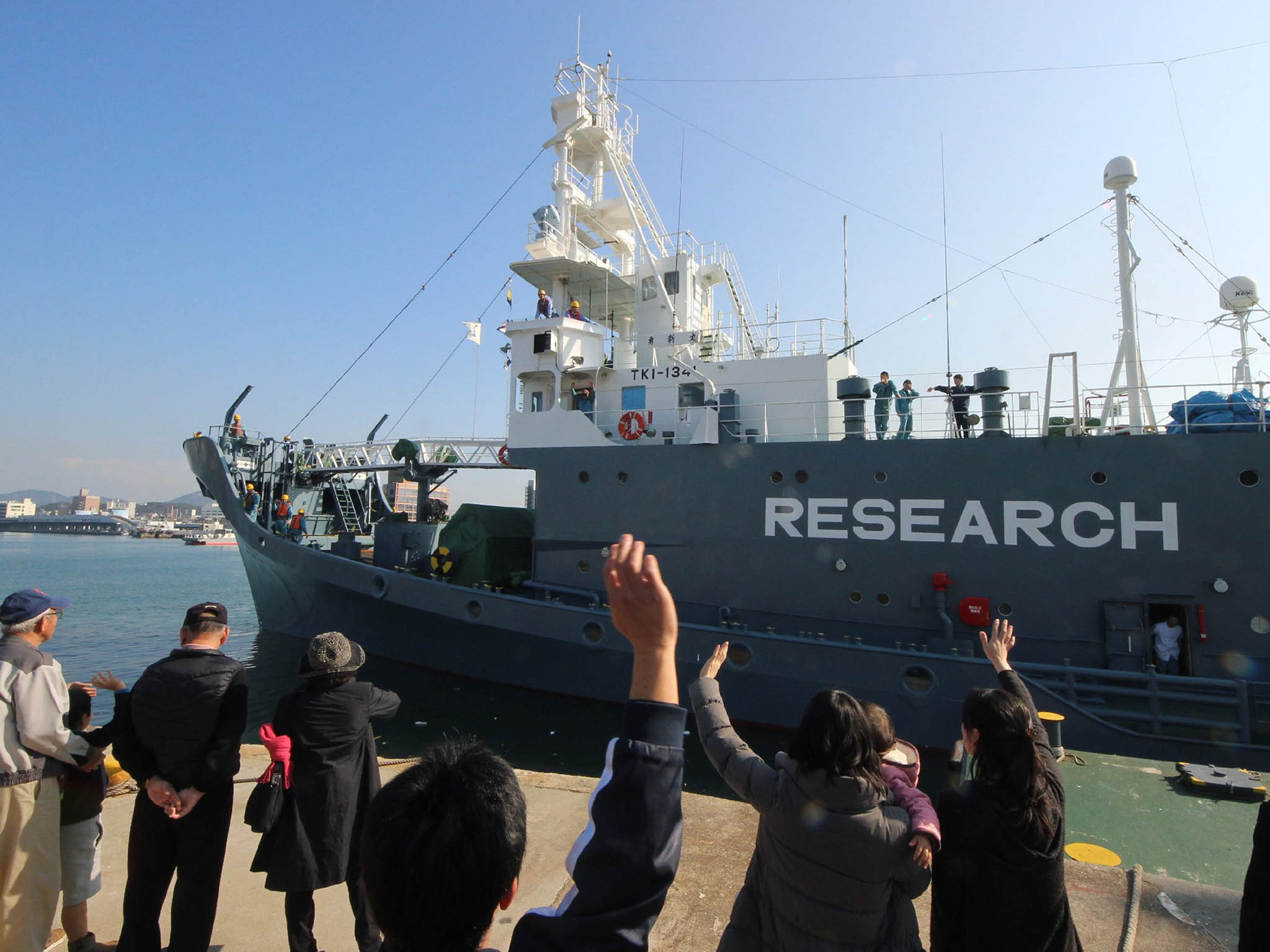Japan insists slaughter of 333 minke whales a year is for scientific research
'We’d like to find out how the marine ecosystem of the Antarctic Ocean is actually shifting,' says Japanese representative

Your support helps us to tell the story
From reproductive rights to climate change to Big Tech, The Independent is on the ground when the story is developing. Whether it's investigating the financials of Elon Musk's pro-Trump PAC or producing our latest documentary, 'The A Word', which shines a light on the American women fighting for reproductive rights, we know how important it is to parse out the facts from the messaging.
At such a critical moment in US history, we need reporters on the ground. Your donation allows us to keep sending journalists to speak to both sides of the story.
The Independent is trusted by Americans across the entire political spectrum. And unlike many other quality news outlets, we choose not to lock Americans out of our reporting and analysis with paywalls. We believe quality journalism should be available to everyone, paid for by those who can afford it.
Your support makes all the difference.Japan has insisted it decided to kill 333 whales a year so it can "find out how the marine ecosystem is changing".
The country has sent its first whaling fleet into the Antarctic Ocean in more than a year, despite the International Criminal Court (ICJ) demanding it halt the practice.
Four vessels left the port of Shimonoseki, in south west Tokyo on Tuesday, heading for the Southern Ocean (Antarctic Ocean).
It came despite the International Criminal Court ruling that the Japanese Whale Research Programme under Special Permit in the Antarctic (JARPA II) - which sought to take 850 minke whales, 50 fin whales and 50 humpback whales - was not for scientific research.
Japan claims it wants to investigate how many whales can be harvested sustainably while studying the environment.
“We’d like to find out how the marine ecosystem of the Antarctic Ocean is actually shifting or changing and not just look at whales but krill and the oceanographic situation,” said Joji Morishita, the nation’s representative of the International Whaling Commission (IWC) in a press conference.
“However, this does not mean that we will take all whales – exactly because we want to have sustainable whaling, we want to have a healthy whale population.”
Japan’s new scientific research programme, which was announced in November 2014, will kill 333 minke whales a year, until 2026/27, according to an information sheet from Japan’s Fisheries Agency and Ministry of Foreign Affairs.
A total of 32 countries are opposing the expedition, including Australia and New Zealand.
CNN reported that Australian Environment Minister Greg Hunt said: “We do not accept in any way, shape or form the concept of killing whales, for so-called ‘scientific research’.”
New Zealand’s acting Foreign Minister Todd McClay told CNN: “New Zealand is strongly opposed to whaling in the Southern Ocean. We call on Japan to take heed of the 2014 International Court of Justice decision and international scientific advice concerning their whaling activities.”
CNN reported the fleet included the research ship “Nisshin Maru”.
There are also two whale-catching ships and a sighting vessel, with the expedition due to end in March 2016.
Join our commenting forum
Join thought-provoking conversations, follow other Independent readers and see their replies
Comments